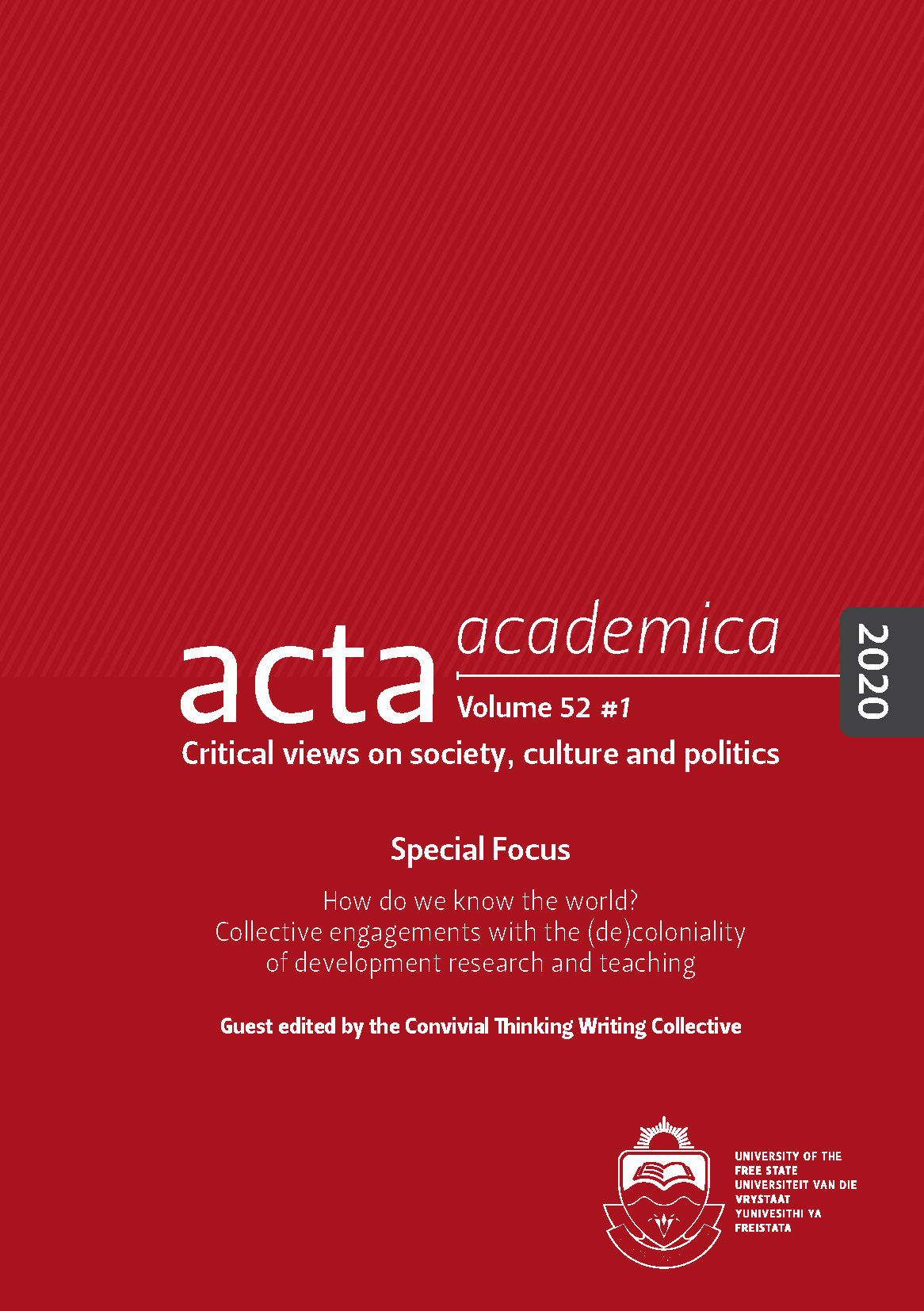Challenging the way we know the world: overcoming paralysis and utilising discomfort through critical reflexive thought
DOI:
https://doi.org/10.18820/24150479/aa52i1/SP3Keywords:
Critical reflexivity, Contradiction, Paralysis, Knowledge production, DecolonisationAbstract
Reflexivity has been foregrounded as an important practice in scholarship regarding the scrutiny of ethical research and knowledge production. What is at risk, however, is reflexivity becoming counter-productive and consumed within the hegemony of Western practice, ultimately making little contribution towards disrupting power asymmetries. In this paper, we ask, at what point can critical self-reflexivity become productive, rather than self-indulgent and paralysing? Reflecting on the assumptions that underpin our scholarship, we ask, how can we utilise emotions of paralysis, discomfort and contradiction towards positive social change? Drawing on our experiences, we highlight the messy nature of reflexivity and argue that these emotions are important and entail a constant re-examination of the assumptions embedded in our pedagogy, scholarship and motives for engaging with the world. In so doing, we show how challenging the ways we know the world through reflexivity and critical thought are vital in the process of decolonising knowledge.
Downloads
##submission.downloads##
Published
How to Cite
Issue
Section
License
Copyright (c) 2020 Author(s)

This work is licensed under a Creative Commons Attribution 4.0 International License.





